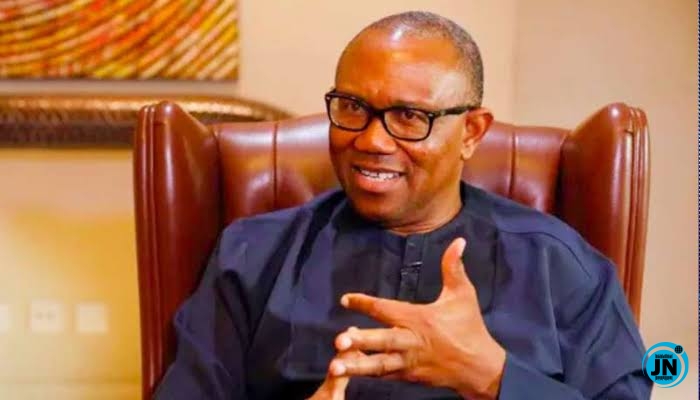Former presidential candidate and prominent statesman Peter Obi has launched a blistering critique against the Airline Operators of Nigeria's (AON) decision to impose a lifetime flight ban on Comfort Emmanson, the young passenger involved in the controversial Ibom Air incident, framing the punishment as emblematic of Nigeria's systemic injustice favoring the powerful over the vulnerable.

In an emotionally charged statement issued Tuesday, Obi revealed he had previously extended personal apologies to Ibom Air management for the passenger's "unacceptable conduct" during the flight, but expressed profound dismay at what he termed the "authoritarian speed and severity" of the lifetime ban imposed through what he alleges was a flawed, non-transparent process.
Drawing from ancient Greek philosophy, Obi invoked Anacharsis' timeless observation that "the law is like a spider's web: it catches the weak, while the powerful break through with ease" - a metaphor he employed to highlight the glaring disparity in how Nigeria's institutions treat ordinary citizens versus politically connected individuals.
The former governor's statement presents a scathing indictment of what he describes as Nigeria's two-tiered justice system: "While this young woman in her twenties faces lifetime consequences overnight for a single incident of misconduct, those in positions of authority routinely commit far graver offenses against the nation with absolute impunity. Where was this decisiveness when politically-exposed persons assaulted airline staff last year?"
Obi's intervention raises fundamental questions about proportionality and due process: "Has every avenue for compassionate resolution been exhausted? Was there proper investigation considering emerging evidence of possible provocation? Does a moment of poor judgment truly merit permanent exclusion from essential transportation services?"
The politician's statement evolves into a broader manifesto for judicial reform: "True justice must be consistent and blind to status. When we punish the vulnerable with unprecedented harshness while excusing the powerful, we institutionalize oppression. There must be space for redemption, especially when misconduct stems from systemic frustrations that our society itself creates."



Obi's statement concludes with both a prayer and a political promise: "May God heal our broken systems. But we must also act - a New Nigeria is possible, one where justice isn't auctioned to the highest bidder nor weaponized against the powerless. This case should spark national reflection on how we administer consequences in a society that claims to value rehabilitation over retribution."
The influential politician's unexpected intervention has dramatically shifted public discourse around the incident, with human rights groups now mobilizing legal challenges against what they term "corporate overreach" in the aviation sector. Industry analysts suggest Obi's stance may force a recalibration of how airlines exercise disciplinary powers over passengers in Nigeria's evolving civil aviation landscape.
